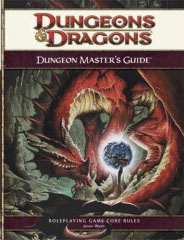Investment. Getting what they want to see out of the game. Having a good time. Feeling included and recognized.
Lots of benefits. I'm really not sure why they had to be spelled out; I had thought it was obvious that if someone gets to be a
creator, not just a passive
recipient, they're more invested.
That's pretty rich, given the other things
you yourself have already said in this thread. The goalposts have already been hypersonic.
Without a narrative explanation, no. That's the critical thing you keep glossing over as though it were irrelevant, when it is actually THE whole point of the rule, the most important part thereof.
Folks have given you examples. I'll give another. Investigating possible leads on a mysterious illness the party has been hearing reports about. Naturally, as a
research task, the obvious choices mostly involve Intelligence or Wisdom: Heal (in 5e, Medicine), perhaps Nature, perhaps Arcana since the disease is probably magical in nature, perhaps History to look up past outbreaks, etc.
The Barbarian asks, "Hey, can I contribute using Athletics?" I, as a DM, would hear that question and reply, "Sell me on it. Flexing muscles is generally not that useful for research. What's your angle?" As DM, I can see a handful of ways a player could
potentially answer; these are only what I can come up with on short notice while sleep deprived, I'm sure actual players could provide further ideas.
- Letting the actually book-smart characters stay put, while the Barbarian runs errands; fetching things from high places or from across the library, sprinting across town to pick up a report stored in a different location, lifting huge stacks of tomes, etc.
- Hiking out to remote villages, where survivors of the last outbreak are believed to live, to get eyewitness accounts of the disease and its progression
- Trading favors with a local physician or alchemist--perhaps providing a robust test subject (though that sounds more like Endurance) or anatomical model--to get access to privileged information normally not provided to outsiders
- Capturing a wild animal thought to be a carrier or survivor of the disease before it jumped species to sapient beings
All of these, naturally, depend on there being appropriate connection points in the world. If alchemists and physicians genuinely don't exist (e.g. it's a Neolithic-period campaign), then obviously that one's right out. If the PCs are deep in the heart of the nation's capital, such that "remote villages" simply wouldn't make sense in context, then that approach doesn't make sense either. Further, just because you can make a convincing argument that it could work doesn't mean you've made a convincing argument that it should be
easy. In fact, the books generally recommend being open-minded about creative uses, but that the DM should feel absolutely free to make the associated check Hard if it's relatively reasonable but not necessarily likely to produce the desired results (e.g., capturing a wild animal to hopefully get a test subject is predicated on a fair amount of luck in actually
finding a test subject to begin with.)
The point is, using Athletics (or any "unexpected" skill) in a creative way
that is narratively warranted
is officially RAW in 4e. I hope this textual emphasis makes clear just how important it is that the action be
narratively warranted.



